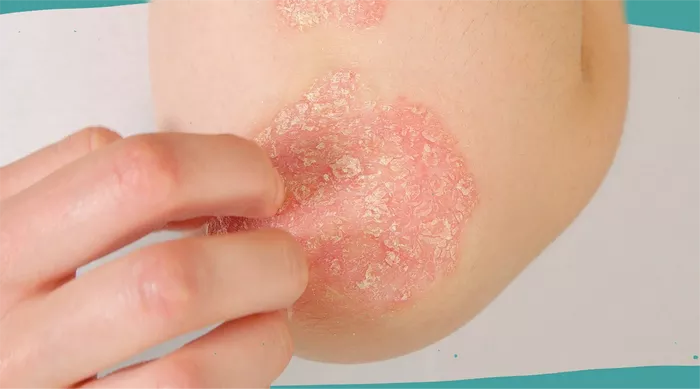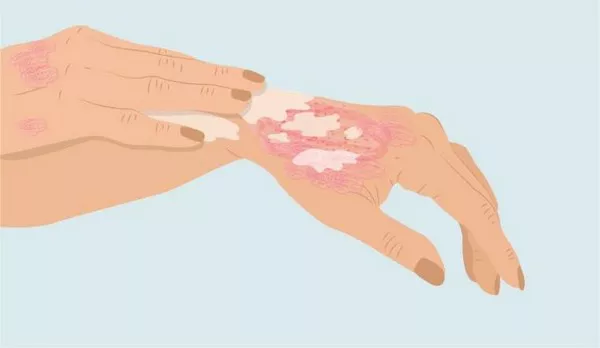Psoriasis is a chronic, inflammatory skin condition characterized by red, scaly patches, and its impact on patients’ quality of life can be significant. Among the various types of psoriasis, Psoriasis Vulgaris and Plaque Psoriasis are often discussed. While these terms are sometimes used interchangeably, there are distinctions that are important for both medical professionals and patients to understand. This article delves into the definitions, clinical features, pathophysiology, diagnosis, and treatment options for Psoriasis Vulgaris and Plaque Psoriasis, shedding light on their differences and similarities.
Definition and Classification
Psoriasis Vulgaris
Psoriasis Vulgaris, also known as common psoriasis, is the most prevalent form of psoriasis, accounting for approximately 80-90% of all psoriasis cases. The term “vulgaris” is derived from the Latin word for “common.” This form of psoriasis is characterized by the presence of well-demarcated, erythematous plaques covered with silvery-white scales. These plaques can appear anywhere on the body but are most frequently found on the scalp, elbows, knees, and lower back.
Plaque Psoriasis
Plaque Psoriasis is a specific type of psoriasis that refers to the presence of raised, red patches covered with a silvery white buildup of dead skin cells or scale. It is the most common manifestation of Psoriasis Vulgaris. Plaque Psoriasis is typically symmetrical and can be persistent, often leading to significant discomfort due to itching and pain.
Clinical Features
Psoriasis Vulgaris
The clinical presentation of Psoriasis Vulgaris can vary widely among patients. Common symptoms include:
- Plaques: Thickened, red areas of skin with a silvery scale.
- Location: Commonly affects the scalp, elbows, knees, and lower back.
- Nail Changes: Nail pitting, discoloration, and separation of the nail from the nail bed (onycholysis).
- Itching and Pain: Can range from mild to severe, impacting daily activities and sleep.
Plaque Psoriasis
Plaque Psoriasis is characterized by:
- Plaque Size and Shape: Typically round or oval-shaped plaques that are clearly demarcated from the surrounding skin.
- Scaliness: Prominent silvery-white scales that are easily shed.
- Symmetry: Plaques often appear symmetrically on both sides of the body.
- Chronicity: Plaques can persist for months or years without treatment.
Pathophysiology
Both Psoriasis Vulgaris and Plaque Psoriasis share a common pathophysiological pathway involving the immune system. The development of these conditions is attributed to a complex interaction between genetic predisposition and environmental factors, leading to an abnormal immune response.
SEE ALSO: Can Psoriatic Arthritis Be Cured Naturally?
Immune Response
The primary driver of psoriasis is an overactive immune response, particularly involving T cells. In a healthy individual, T cells protect the body against infections by attacking pathogens. However, in psoriasis, T cells mistakenly attack healthy skin cells, leading to an inflammatory response.
Cytokines and Inflammation
Key cytokines, such as tumor necrosis factor-alpha (TNF-α), interleukin-17 (IL-17), and interleukin-23 (IL-23), play critical roles in the inflammatory process. These cytokines promote the proliferation of keratinocytes (skin cells), resulting in the thickened plaques characteristic of psoriasis.
Genetic Factors
Genetic predisposition also plays a significant role in the development of psoriasis. Studies have identified several susceptibility loci, with the PSORS1 locus on chromosome 6 being the most strongly associated with the condition.
Diagnosis
The diagnosis of Psoriasis Vulgaris and Plaque Psoriasis is primarily clinical, based on the appearance of the skin lesions and the patient’s medical history. However, additional tests may be performed to rule out other conditions and confirm the diagnosis.
Clinical Examination
A thorough clinical examination involves inspecting the skin, nails, and scalp for characteristic lesions. The well-demarcated plaques with silvery scales are typically sufficient for a clinical diagnosis.
Biopsy
In cases where the diagnosis is uncertain, a skin biopsy may be performed. Histopathological examination of the biopsy can reveal specific features of psoriasis, such as:
- Hyperkeratosis (thickening of the outer skin layer)
- Parakeratosis (retention of nuclei in the stratum corneum)
- Acanthosis (thickening of the epidermis)
- Dilated blood vessels in the dermal papillae
Differential Diagnosis
It is crucial to differentiate psoriasis from other skin conditions with similar presentations, such as eczema, seborrheic dermatitis, and fungal infections. This is particularly important because treatment strategies can differ significantly.
Treatment Options
Effective management of Psoriasis Vulgaris and Plaque Psoriasis involves a combination of topical therapies, systemic treatments, and lifestyle modifications. The choice of treatment depends on the severity of the condition, the extent of skin involvement, and the patient’s overall health.
Topical Therapies
Topical treatments are often the first line of defense for mild to moderate psoriasis. These include:
- Corticosteroids: Reduce inflammation and itching. They are available in various strengths and formulations.
- Vitamin D Analogues: Such as calcipotriol, which helps to slow down the growth of skin cells.
- Coal Tar: Reduces scaling, itching, and inflammation.
- Topical Retinoids: Such as tazarotene, which helps to normalize the growth of skin cells.
Phototherapy
For moderate to severe cases, phototherapy may be recommended. This involves exposing the skin to ultraviolet (UV) light under medical supervision. Types of phototherapy include:
- Narrowband UVB Therapy: More effective and safer than broadband UVB.
- PUVA Therapy: Combines a drug called psoralen with UVA light, used for severe psoriasis.
Systemic Treatments
When topical therapies and phototherapy are insufficient, systemic treatments are considered. These include:
- Traditional Systemic Agents: Such as methotrexate, cyclosporine, and acitretin, which suppress the immune system to reduce inflammation.
- Biologic Agents: Target specific components of the immune system. Examples include TNF inhibitors (e.g., adalimumab, etanercept), IL-17 inhibitors (e.g., secukinumab), and IL-23 inhibitors (e.g., ustekinumab).
Lifestyle Modifications
Patients are also encouraged to adopt lifestyle changes that can help manage psoriasis symptoms:
- Stress Management: Since stress can trigger or exacerbate psoriasis, techniques such as yoga, meditation, and counseling can be beneficial.
- Dietary Adjustments: Maintaining a healthy diet and avoiding known triggers (such as alcohol and certain foods) can improve overall health and potentially reduce flare-ups.
- Skin Care: Using moisturizers to keep the skin hydrated and avoiding harsh soaps and hot water can prevent dryness and irritation.
Prognosis and Quality of Life
Psoriasis Vulgaris and Plaque Psoriasis are chronic conditions with a relapsing and remitting course. While there is no cure, effective management can significantly improve patients’ quality of life.
Impact on Quality of Life
Psoriasis can have a profound impact on a patient’s physical, emotional, and social well-being. The visible nature of the disease can lead to self-consciousness, social isolation, and depression. It is important for healthcare providers to address these aspects and provide comprehensive care that includes psychological support.
Long-Term Management
Long-term management of psoriasis requires regular follow-up with healthcare providers to monitor treatment efficacy and adjust therapies as needed. Patients should be educated about the chronic nature of the disease and the importance of adherence to treatment plans.
Conclusion
Psoriasis Vulgaris and Plaque Psoriasis, while closely related, have nuances that distinguish them in terms of clinical presentation and management. Understanding these differences is crucial for accurate diagnosis and effective treatment. Advances in our understanding of the pathophysiology of psoriasis have led to the development of targeted therapies that offer hope for better disease control and improved quality of life for patients. As research continues, it is anticipated that more personalized treatment approaches will emerge, further enhancing outcomes for those living with psoriasis.
Related Topics:
























